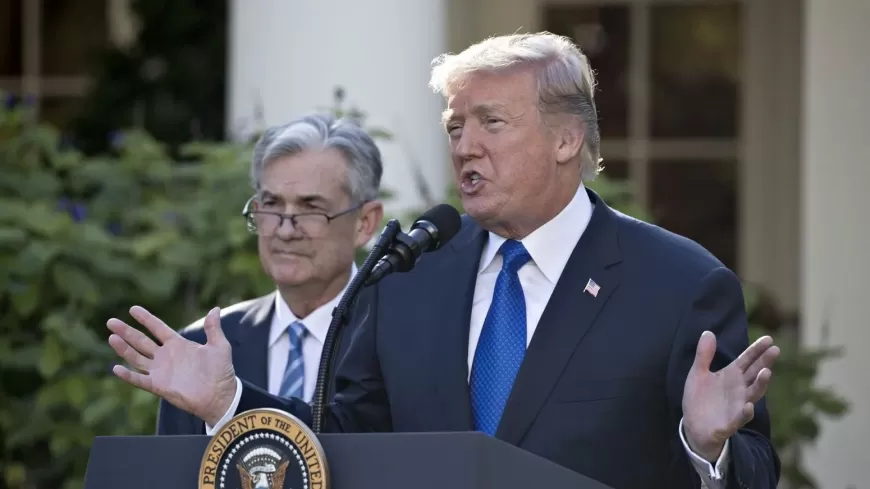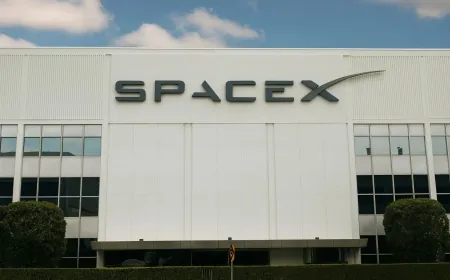How Trump Could Change the Federal Reserve If He Wins Again
Trump may introduce big changes to the Federal Reserve if re-elected, possibly impacting interest rates and Fed leadership for years to come

Donald Trump is considering changes to the Federal Reserve that could shift how the central bank operates if he wins the 2024 election. Discussions have been circulating about how Trump’s presidency might affect the Fed’s independence, with ideas ranging from having more influence over interest rates to reshaping the leadership at the top. While Trump has dismissed more extreme suggestions, such as firing current Fed Chair Jerome Powell, several strategies are still being discussed that could alter the relationship between the White House and the Fed.
One idea being considered is appointing a "shadow" Fed chair. This concept, proposed by one of Trump’s economic advisers, Scott Bessent, would involve nominating someone to begin taking on Powell’s responsibilities before his term as chair ends in 2026. While Powell will remain on the Fed’s board until 2028, this move could weaken his authority and influence much sooner. Although Trump hasn’t officially endorsed this idea, it’s something that’s gaining attention within his team, and Bessent is frequently mentioned by Trump in speeches.
Trump has already said he doesn’t plan to nominate Powell for another term as Fed chair and is openly discussing possible successors. Bessent, a prominent Wall Street figure, could be in the running for a key role, with Trump recently praising him during an appearance at the Detroit Economic Club. This indicates that Trump may be exploring options to bring in fresh leadership at the Fed.
Another significant proposal comes from a conservative think tank known as the Heritage Foundation. They have produced a document called "Project 2025," which lays out a blueprint for how the Federal Reserve could be restructured. The plan focuses on reducing the Fed's influence and shifting its priorities. For instance, it suggests narrowing the Fed’s mandate to focus solely on inflation, rather than its current dual mandate, which also includes promoting employment. The document also proposes reducing the Fed's role in regulating commercial banks and limiting its use of financial tools like purchasing securities to manage the economy.
Some of the proposals in "Project 2025" are quite radical, such as the idea of dismantling the central bank altogether and returning to a more decentralized banking system. While this notion has not gained much support in political or financial circles, it highlights the growing push among some conservatives to limit the Fed’s powers.
Trump has also signaled interest in gaining more control over federal agencies in general, including independent institutions like the Federal Trade Commission (FTC) and the Federal Communications Commission (FCC). While he hasn’t explicitly mentioned the Fed in this context, it could become part of his broader effort to reduce bureaucracy and assert more executive control. Trump has made it clear that he wants to reform the federal government, including making it easier to fire employees who he believes are obstructing his policies. This could have an impact on the Fed, which operates independently but could come under closer scrutiny if Trump returns to office.
If Trump succeeds in implementing these ideas, it could drastically reshape the role of the Federal Reserve and the way it interacts with the government. The Fed has long been viewed as an independent institution, free from political influence, but these changes could bring it closer under the control of the executive branch. Critics argue that weakening the Fed's independence could have serious consequences for the economy, especially in managing inflation and interest rates.
Trump’s potential changes to the Federal Reserve have already become a hot topic in the 2024 election. Democrats, including Vice President Kamala Harris, have emphasized the importance of keeping the Fed independent. The Biden administration has also highlighted its commitment to maintaining a central bank that operates without political interference.
As the 2024 campaign heats up, Trump’s plans for the Federal Reserve could become a key point of debate. With discussions surrounding the Fed’s future gaining attention, Trump’s vision for economic reform and the broader government could play a major role in shaping Washington if he wins another term in office.
Also Read: Wall Street’s Views on Trump and Harris in the 2024 Election: What’s at Stake for the Economy































































